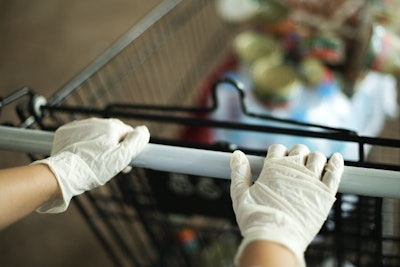
During the times of the COVID-19 pandemic, the definition of a sustainable food supply has changed for many people.
That point was brought up by sustainable agriculture specialists, speaking at separate Animal Agriculture Alliance Virtual Stakeholders Summit pre-conference webinars.
Sara Place, chief sustainability officer, Elanco Animal Health, addressed the topic during the “Where’s the Beef with Sustainability and Plant-Based Alternatives,” webinar on April 30, while Ryan Bennett, executive director of the U.S. Roundtable for Sustainable Poultry & Eggs (US-RSPE), spoke about it the following day during the webinar, “Connecting Around Sustainability: Where is Animal Ag Headed?”
“I think a lot of people when they hear ‘sustainability,’ they still think primarily about environmental issues,” Bennett explained.
However, that isn’t the case for Bennett and his organization. He said US-RSPE has three main pillars: People, Poultry and Planet. Under ordinary circumstances, Bennett said, “there’s not one more important than another.”
But Bennett added that due to the current COVID-19 situation, “Our people and poultry pillars will be more important in the short-term.”
Place seems to agree. She said since the pandemic began, the areas of emphasis regarding sustainability have changed.
She said consumers are now getting “back to the basics of what they really want,” and what they really want does not necessarily mean the foods that are produced in the most environmentally sustainably way. Plant-based meat alternative products, viewed by some as more sustainable, have been in less demand than traditional meat and poultry, she pointed out.
“I think they were thinking of sustaining themselves. … I think when we have a major shock to the system like this, what comes up and bubbles up is priority No. 1: How am I going to feed my family and take care of my family and provide good nutrition. I think that’s why so many people raided the meat case,” Place said.
“I think we’ve seen a lot of people just going for the option that makes the most sense. People have been under financial distress in a lot of cases in the United States,” so they are looking for the most nutritious foods at the lowest costs.
Place believes the recent constraints the COVID-19 pandemic has left on the greater food system from the farm to the grocery store have left people not so apt to take their food for granted.
“I think that has driven a lot of the thankfulness that people feel from everyone in the food system from people who are grocery store workers, to processing plant workers to the farmers, and I think it’s going to get people back to the basics of what they really want,” she said.
View our continuing coverage of the coronavirus/COVID-19 pandemic.
















